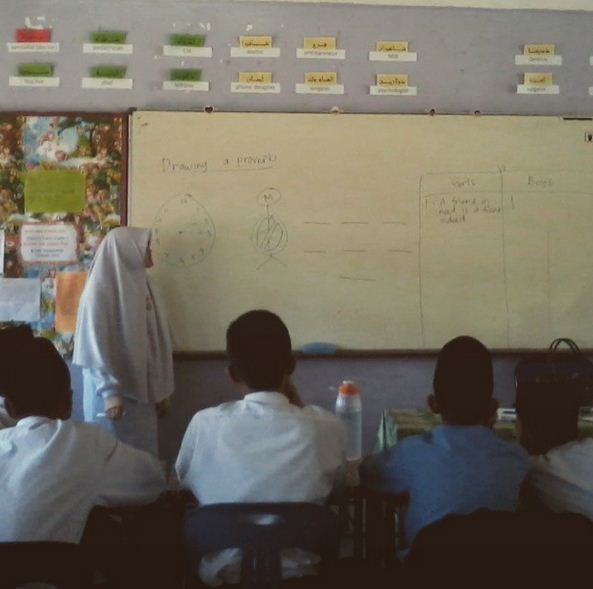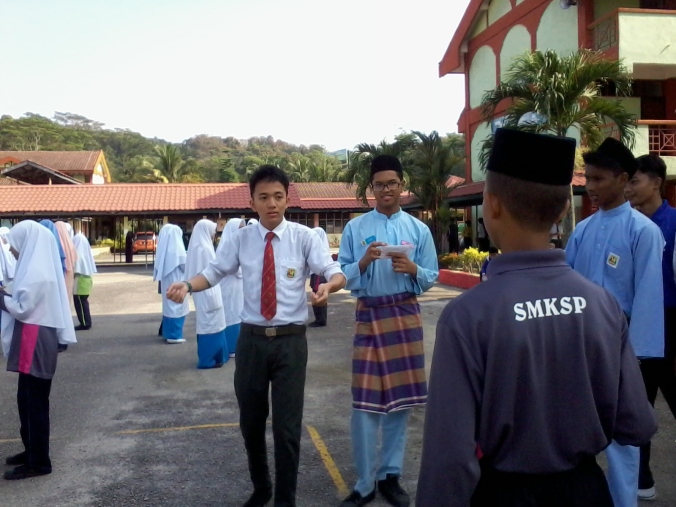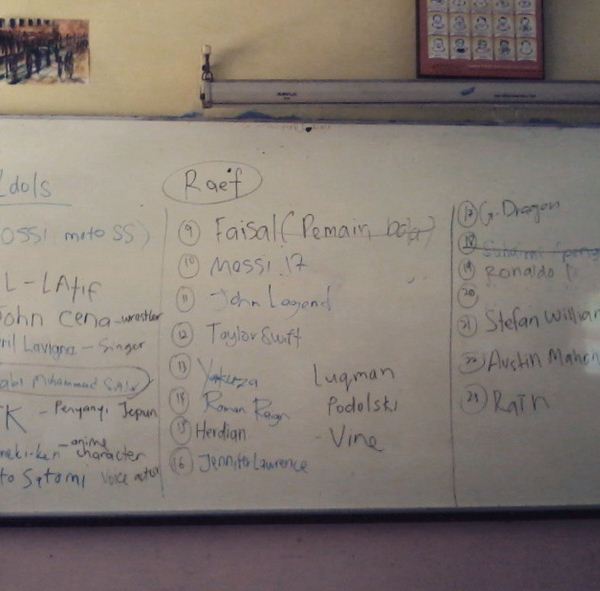#Throwback
I’ve been thinking of posting this on last week, but due to slow internet connection, everything was delayed 😦
Since it’s school holiday, I am posting this ! 😀
11th March, 2015
It is the examination week, so a lot of class relief throughout this week. Some students are okay, some are hard to be controlled. The same goes when I had to replace teachers that had MC and went to any special courses out of school. So when I get into classes, I usually have games with the students- language or general knowledge games. It is so vital to have any kind of activities during relief because if you don’t, students will be out of control, do whatever they want, and… yep, a lot of noise! A form 3 student even threw a table away when I was in the class, feeling so angry with his friend who teased him. Another student teased his friend by taking a waste basket and put it on his friend’s head. Yes, so hyperactive, so agressive. I know, I know. I was quite shocked to see the situation. Then I asked everybody to calm down, take their seat, and without saying a word, I drew 4 lines on the whiteboard- for writing scores. We’re having a game. Everyone sat down, getting excited and gave their groups’ names. I just follow their pace, and after that, they have to follow mine.
So this is how you get their attention- through games.
Some of the games that I’ve done were:
- Draw and Guess the proverbs.

A girl drew a proverb
- Get a volunteer to draw the proverb (in which you will tell the drawer later).
- Divide the students into several groups. Girls vs boys; or group A, B, C, and D. It’s up to you!
- Tell the volunteer (person that draws) the proverb, and then other students have to guess.
- The first group that is able to answer the proverb correctly will get marks.

Charades game during the Language Month
- Charades (Guessing game)
- As for charades, you can use a lot of categories: proverbs, nouns, verbs, and so on).
- Have a volunteer to act out. And also you may have cue cards for the words that students need to guess.
- The procedure is as the same as the previous game- divide students into groups and have a volunteer to act out, while other students have to guess. The first group that is able to guess correctly will be given points.

- General knowledge game
- Divide students into several groups. Then, teacher asks questions about general knowledge. For instance, “Who is the President of Russia?”. The categories depends on the teacher’s preference and students’ background knowledge.
- Group that answers the fastest and correctly will be given marks. Group with the highest mark will be announced as the winner.
Other than having games, you can also have a sharing moment with the students. It’s not you who share, but let students share theirs. You only facilitate and show your interest in things that they know. As for me, I divide the sharing moment ‘module’ into several categories:
- Idols (Someone that you admire)
- Favorite movies
- If you are a millionaire, what would you like to do?
There are several ways of handling this ‘module’ (hahah. The so-called module, because I just thought about it). First, you may handle it in a huge classroom, in which students answer randomly and teacher writes the answers on the whiteboard. Once the whiteboard is full with answers (until you can no longer write), ask students the reasons of their answers. Second, you can divide students into several small groups and let them discuss with their friends. Provide a mahjong paper to each group and a marker pen, and finally present in front of the class.

List of idols by students

And that boy up there,he was talking about Saidina Umar. Like a pro,I can say! 🙂 To conclude,we need extra knowledge so that we can share something,& let them share theirs as well. 🙂
And of course, finally, you need to conclude the whole module. If you talk about idols, then you need to introduce them to good idols, the real heroes. Those who actually bring goodness to the society. Here, you can insert some values by concluding the whole thing 😉 It was quite surprising to see students became so participative and telling you the answers. (Yes, some of the answers might be ridiculous, so you just need to ignore them, or tell them the right thing that they need to do).
Indeed, dealing with students is such a big challenge, because they are humans, also have feelings as we do, and also have different age gap. Hence, we need to understand their way of thinking, and take the chance to guide them to the correct direction. You don’t have to do a lot of lecture. They can think, but sometimes they are just too eager to do something, easily react to any distractions. They can’t sit still. From my personal opinion, you can’t just ask them to keep quiet and do nothing- because they know how boredom ‘kills’ them. Haha. To be honest, I learned a lot from them as well, especially about idols. I guess I need to read more about sports icons :p
Till then! 😉






